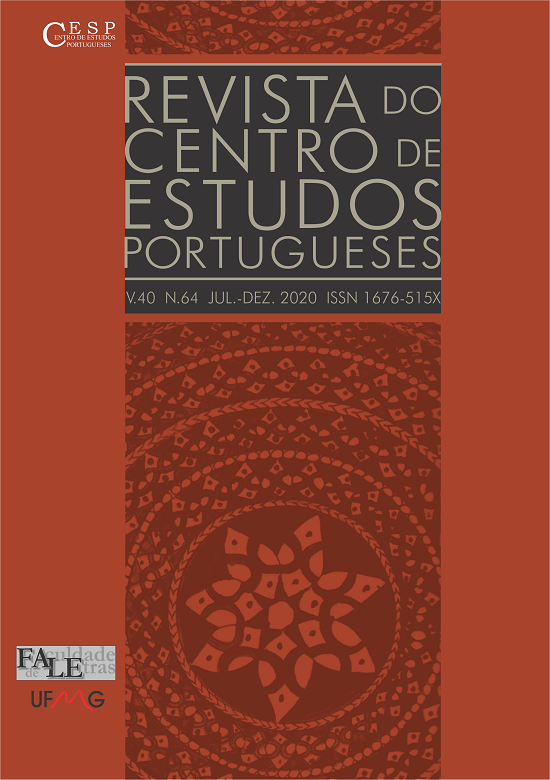O Santo Ofício em Portugal e a narrativa crítica de Alexandre Herculano em relação à Inquisição / The Holy Office in Portugal and the Critical Narrative of Alexandre Herculaneum in Relation to the Inquisition
DOI:
https://doi.org/10.17851/2359-0076.40.64.145-170Keywords:
Inquisição, Portugal, Alexandre Herculano, Inquisition, Alexandre Herculano.Abstract
Resumo: O presente artigo estuda, inicialmente, o Santo Ofício português – iniciado em 1536 e oficialmente extinto apenas no século XIX, em 1821 –, procurando abordar alguns aspectos históricos, sociais, políticos e culturais decorrentes do funcionamento do tribunal inquisitorial em solo luso. Para tanto, dialoga-se com historiadores e intelecuais como António Baião, Anita Novinsky, António Sérgio, Lana Lage da Gama Lima, Giuseppe Marcocci, José Pedro Paiva, Toby Green, António José Saraiva, Eduardo Lourenço, dentre outros. Em um segundo momento do estudo, analisa-se a obra História da origem e estabelecimento da Inquisição em Portugal (1854), de Alexandre Herculano (1810-1877), buscando-se evidenciar a forma pela qual a narrativa historiográfica herculaniana constituiu um discurso crítico em relação à institucionalização da Inquisição no reino português – durante a monarquia de D. João III – e aos laços estreitos entre os poderes real e religioso.
Palavras-chave: Inquisição; Portugal; Alexandre Herculano.
Abstract: This article initially studies the Portuguese Holy Office - which began in 1536 and was officially extinguished only in the 19th century, in 1821 - and seeks to address some historical, social, political and cultural aspects arising from the operation of the Inquisitorial Court on Portuguese soil. To do so, it dialogues with historians and intellectuals such as António Baião, Anita Novinsky, António Sérgio, Lana Lage da Gama Lima, Giuseppe Marcocci, José Pedro Paiva, Toby Green, António José Saraiva, Eduardo Lourenço, among others. In a second moment of study, the work History of the origin and establishment of the Inquisition in Portugal (1854), by Alexandre Herculano (1810-1877), is analyzed, seeking to highlight the way in which the herculanian historiographic narrative constituted a discursive criticism in relation to the institutionalization of the Inquisition in the Portuguese kingdom – during the monarchy of D. João III – and to the close ties between the real and religious powers.
Keywords:Inquisition; Portugal; Alexandre Herculano.Resumo: O presente artigo[1] estuda, inicialmente, o Santo Ofício português – iniciado em 1536 e oficialmente extinto apenas no século XIX, em 1821 –, procurando abordar alguns aspectos históricos, sociais, políticos e culturais decorrentes do funcionamento do tribunal inquisitorial em solo luso. Para tanto, dialoga-se com historiadores e intelecuais como António Baião, Anita Novinsky, António Sérgio, Lana Lage da Gama Lima, Giuseppe Marcocci, José Pedro Paiva, Toby Green, António José Saraiva, Eduardo Lourenço, dentre outros. Em um segundo momento do estudo, analisa-se a obra História da origem e estabelecimento da Inquisição em Portugal (1854), de Alexandre Herculano (1810-1877), buscando-se evidenciar a forma pela qual a narrativa historiográfica herculaniana constituiu um discurso crítico em relação à institucionalização da Inquisição no reino português – durante a monarquia de D. João III – e aos laços estreitos entre os poderes real e religioso.
Palavras-chave: Inquisição; Portugal; Alexandre Herculano.
Abstract: This article initially studies the Portuguese Holy Office - which began in 1536 and was officially extinguished only in the 19th century, in 1821 - and seeks to address some historical, social, political and cultural aspects arising from the operation of the Inquisitorial Court on Portuguese soil. To do so, it dialogues with historians and intellectuals such as António Baião, Anita Novinsky, António Sérgio, Lana Lage da Gama Lima, Giuseppe Marcocci, José Pedro Paiva, Toby Green, António José Saraiva, Eduardo Lourenço, among others. In a second moment of study, the work History of the origin and establishment of the Inquisition in Portugal (1854), by Alexandre Herculano (1810-1877), is analyzed, seeking to highlight the way in which the herculanian historiographic narrative constituted a discursive criticism in relation to the institutionalization of the Inquisition in the Portuguese kingdom – during the monarchy of D. João III – and to the close ties between the real and religious powers.
Keywords: Inquisition; Portugal; Alexandre Herculano.
[1] Este estudo é parte da tese As representações da Inquisição nos discursos historiográfico de Alexandre Herculano e literário de José Saramago, defendida em 2014, na UFJF.










